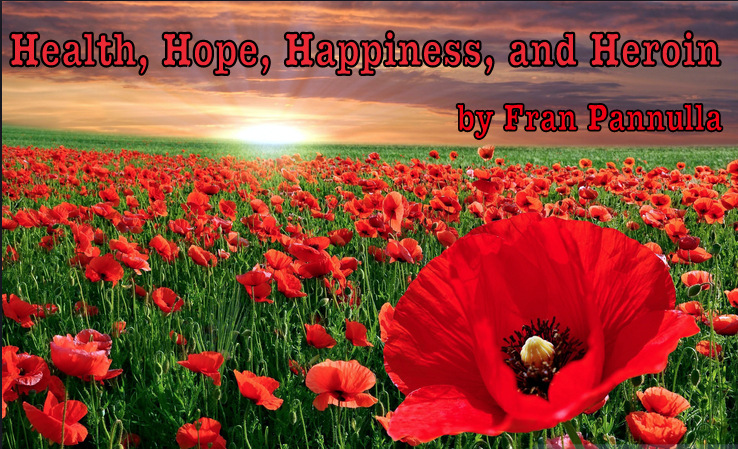 Throughout my time in recovery and in meetings of all their various forms, something that constantly comes up is the issue of relapse. When a relapse happens, most people feel like a failure. They feel recovery is hopeless. Something that other people may be able to achieve, but is out of reach for them. I know, I was there too. It’s easy to adopt a very negative attitude toward yourself — or recovery in general — after a relapse. While relapses are something to be avoided, for most people they are a part of recovery. How you choose to view them is up to you.
Throughout my time in recovery and in meetings of all their various forms, something that constantly comes up is the issue of relapse. When a relapse happens, most people feel like a failure. They feel recovery is hopeless. Something that other people may be able to achieve, but is out of reach for them. I know, I was there too. It’s easy to adopt a very negative attitude toward yourself — or recovery in general — after a relapse. While relapses are something to be avoided, for most people they are a part of recovery. How you choose to view them is up to you.
Usually, people seem to feel like they’re back at square one after a relapse, and in my opinion, some treatment programs reinforce that mindset. If you look at the whole picture there are two sides to this coin: If you’ve previously had years, months or even a few days of sobriety, that means you did find success for some period of time. Things were going right before they went wrong. Try and build on that success.
Change doesn’t usually happen overnight; for most people it’s a process. A study done in 1983 followed heavy smokers trying to quit. As the study followed them over a number of years they noticed a pattern had developed. This pattern led to the Transtheoretical Model or the “Stages of Change.” They found that when someone tries to change any significant habit, like smoking, drugs, alcohol, etc., there tends to be five stages of change.
1) Precontemplation: You don’t think you have a problem.
2) Contemplation: You begin to think you may have a problem.
3) Preparation/Planning: You’ve realized you have a problem and begin looking for help. Perhaps checking out meeting locations or looking into rehab options.
4) Action: You take action to begin changing the behavior, whether that be going to a meeting, checking into rehab or just plain ol’ abstinence.
5) Maintenance: You’ve changed the old habits and have built new healthier ones. This period typically lasts 6 months to five years, usually toward the latter. After five years, the odds of returning to the old behavior drops down significantly, but for many never reaches zero.
These stages are not linear; people often move back and forth through them throughout recovery. You may be in the action stage and have a relapse and fall back into contemplation. You can also be in different stages of change in different areas of your life. You may be in the action stage of quitting drinking, but are in the contemplation stage regarding quitting smoking or exercising or getting a new job.
How does this relate to relapse? Each stage of change is progressing you towards the ultimate goal: maintenance. Odds are you are not going to beat this addiction overnight, a habit which typically develops over a long period of time. You didn’t create your problems in one day; you’re not going to fix them in one, either. The good news is, if you’re reading articles like this or seeking help in general, you’re already off to a great start! Even if you had months or years or days before you relapsed, you’re not back at square one. You’re picking up from where you left off. Dust yourself off and get back to work. Take the opportunity to learn from the relapse to avoid the same outcome next time.
Try and think back to what was going on before the relapse. What was going on in your life at the time, what kind of mood were you in? Sometimes it’s obvious what might have led to feeling the need to use. Maybe you got fired, were broken-up with, lost a friend, or sometimes you just really wanted to feel high. These things are going to happen. You’re going to have horrible days where it feels like nothing is going right and it makes you want to use. You’re also going to have spectacular days where everything seems to be going right that still make you want to use in celebration. The key is how you deal with those urges and feelings during those moments. Do you choose to give in or do you choose to move past it and make a better life for yourself?
In my opinion, besides maybe during physical withdrawl, using is a choice. If you’re past the point of physically needing your drug and you choose to use, that is a choice you are making. It may be a strong compulsion and resisting it may be extremely difficult, but you must remember that you do have a choice. In that moment you need to remember why you’re choosing not to use in the first place. Weigh the costs of using versus the benefits of not using. The choice should be fairly obvious. If you still choose to use anyway, you’re essentially saying you care more about using than you do about whatever consequences occur from that action. Whether that’s your freedom, your job, your relationships with your family and friends, or just your physical health.

Now is a great time to plan for the next time things get rough. How will you cope with it? Who are your “support system?” By setting yourself up to make better choices for your recovery, you can create a better life for yourself. No one is going to do it for you, and you need to want to do it badly. And also very important, you have to want to do it for yourself. YOU ARE WORTH IT! You have lots of value to those around you. To your family and friends, to society and also to others in the grip of addiction. After you’ve pulled yourself out of the hole, you can turn around and grab someone else’s hand. There are many ways to give back, and I promise you it’s extremely rewarding. But, you can’t help anyone in your life until you help yourself first. I hope I have been able to help you in some way, and shed some light on the dreaded subject of relapse.
Please, if you or anyone you know is seeking help with an addiction and have questions, feel free to email me at Pannullafr@gmail.com
Also, I recommend checking out www.smartrecovery.org — it really did change my life. It definitely can’t hurt. It’s always good to gather more information to help yourself or someone else in recovery.
 Fran Pannulla is a 32-year-old son, brother, aspiring writer and life enthusiast from Philadelphia, PA. When not doing recovery-related things throughwww.smartrecovery.org, you can find him talking to strangers, jamming to music, reading about world events, getting his learn on, or just overall trying to enjoy everything this life has to offer in a positive and healthy way. You can contact him at pannullafr@gmail.com.
Fran Pannulla is a 32-year-old son, brother, aspiring writer and life enthusiast from Philadelphia, PA. When not doing recovery-related things throughwww.smartrecovery.org, you can find him talking to strangers, jamming to music, reading about world events, getting his learn on, or just overall trying to enjoy everything this life has to offer in a positive and healthy way. You can contact him at pannullafr@gmail.com.

You’re one click away! Sign up for our free eNewsletter and never miss another thing







